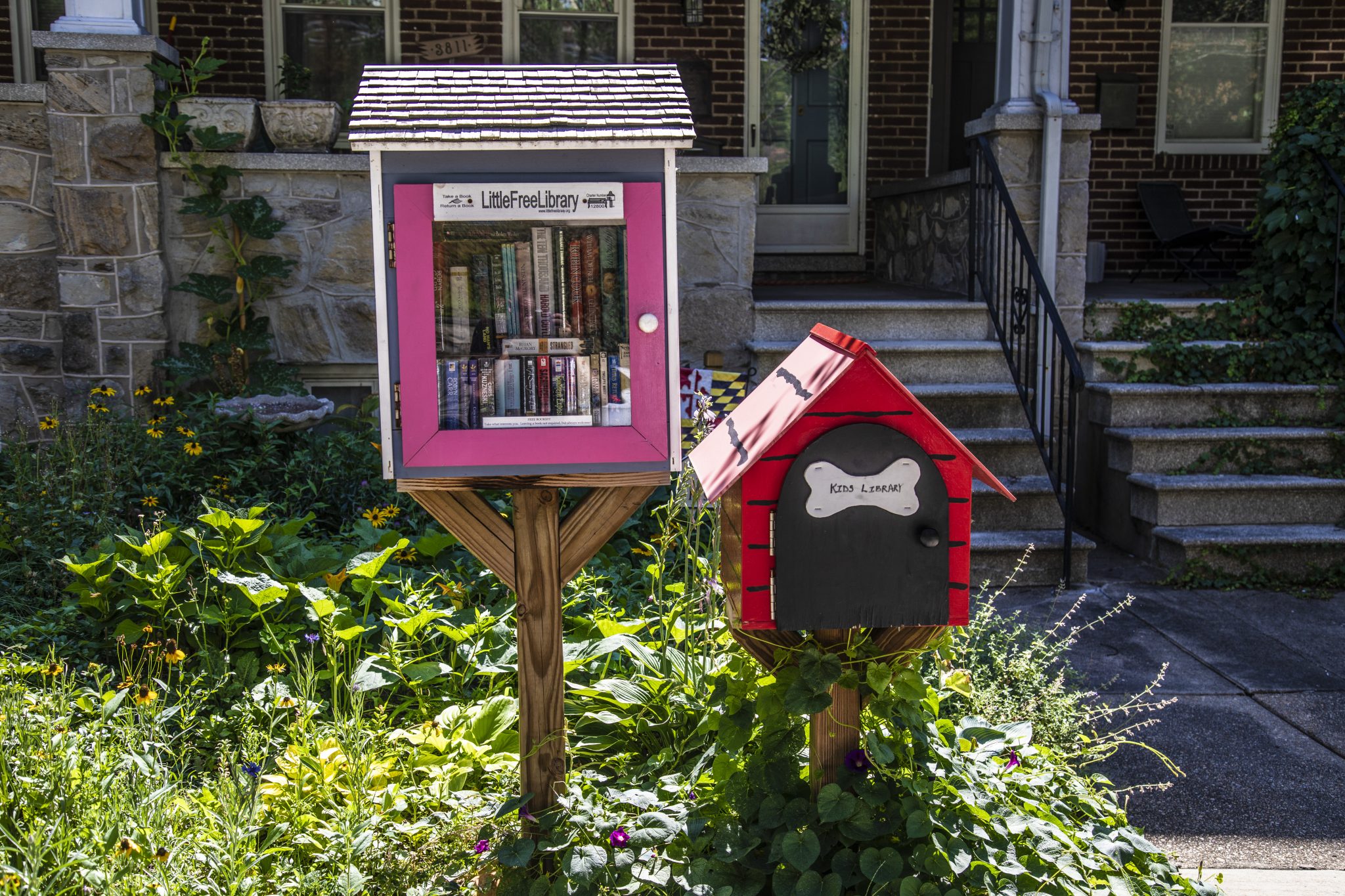This is a story about books, shame and the distance between a historic Baltimore neighborhood and high culture hidden within the monotonous cul-de-sacs of the 1960s suburb where I grew up.
The neighborhood is Reservoir Hill — long in decline, now in revival. Linthicum is the suburb, once a 19th-century expanse of bean and strawberry fields near BWI. The secluded erudition belonged to Bill and Norma Zaruba, married for 68 years and gone in 2015 within weeks of each other, a quiet, dignified couple whom I knew since childhood but apparently not very well.
The mortification was all mine.
Books run through this tale like water through a tangled garden hose.
In Reservoir Hill — one of the Jewish community’s early jumps after dropping anchor in East Baltimore — stands one of those oversized birdhouses called a Little Free Library. Take a book, leave a book. I frequent about a half-dozen of them around the city with a particular favorite on a well-groomed lot near Druid Hill Park’s reservoir.
Friends like the Zaruba family and strangers who glimpse the bookmobile that is my pickup truck know that I donate books to prisons, drug treatment centers, nursing homes and laundromats, the chaff among amber grain like Wharton, Welty and Woolf. When I encounter a Little Free Library, I trade this for that and roll on.
Earlier this summer, I flagrantly rolled over the curbside flowerbed of a woman on Brookfield Avenue after curating a Little Free Library in Reservoir Hill, twisting the rear bumper of my truck when it hooked on a square of two-by-fours enclosing a small tree and plants. Without getting out to look, I shifted gears until the snag gave way and drove home, where my wife asked, “What happened to your bumper?” To which I replied, “What are you talking about?”
I found out what she was talking about on my next visit to Reservoir Hill, where I go early each Sunday morning for 45 grueling minutes of Pilates that allow me to, as Frankie Valli said, “Walk like a man.”
Same schtick every week: Park, Pilates, visit the Little Free Library, drive home. Except for the week after the engagement with the flowerbed when, as I walked back to the truck after visiting the open-air library, an older, dignified woman dressed for church beckoned from the curb with a crooked finger. I knew immediately what she wanted, shame flooding my bloodstream like an IV drip.
Very calmly, she tried to play a cell phone video of my truck wrecking her garden from the week before. “Yes,” I said, confession doubling as apology, “that was me.”
And then she asked a variation on a question for which — in idiotic circumstances since childhood — I have never had a legitimate answer: “Why did you drive away without telling me what happened?”
I offered to pay, but she didn’t want money. Pointing to several cracked pieces, she said, “Bring me planters like the ones you broke and leave them on the table near my steps the next time you’re here.”
OK, I said, and asked if we could hug. She acquiesced, though I don’t think she was thrilled about it. On my next visit to Reservoir Hill, I left a pair of blue ceramic flowerpots, not as fine as the ones I broke but the best they had at Walgreens. I left them on the table, as instructed, and drove away.
Over the next few days, I had time to go through my haul from the Zaruba house down the street from Mom and Dad. It was slowly being emptied of nearly 70 years of a shared life by Bill and Norma’s kids. In doing so, I learned that the couple — originally from Curtis Bay and very proud of their Bohemian heritage — were staunch supporters of the Baltimore Opera Company, kept a vast library on ancient Greece and Rome, and like many Americans who began families in the 1950s, subscribed to the Time-Life book club. Part of their Time-Life collection was a 12-volume series for the home gardener, which I didn’t even remove from the box.
On the cardboard carton, I taped a photo I had taken of the Little Free Library at the end of the block, wrote a note on it — “From the guy who ran over your flowerbed” — and left it on the table next to the steps.
Rafael Alvarez will gladly come to your house to retrieve unwanted books. He can be reached via orlo.leini@gmail.com.





